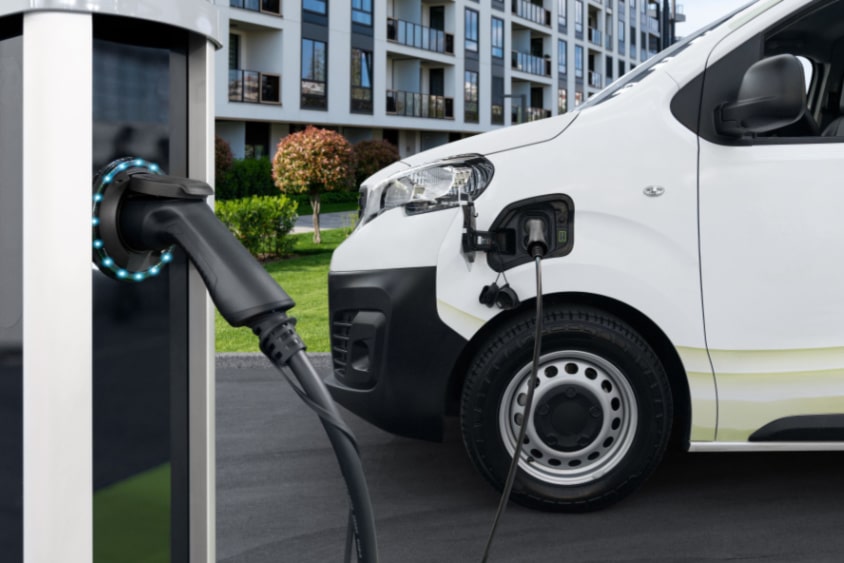Electric car tax benefits explained
Written by: Simon Pavey, Last updated:23rd September 2022

Electric vehicles aren’t just great for the environment, but they also help drivers and businesses save money by providing income tax incentives and other benefits. This blog will discuss all the different types of benefits provided to electric car users including:
- Road tax benefits
- Tax on Benefits in Kind
- EV congestion charge exemption
- EV charging tax relief
- Electric van benefits
- Government grants and allowances
- Privately owned electric cars
Electric car road tax
Electric vehicle road tax is paid by the individual and depends on the type of electric car, and when it was registered. For vehicles that are 100% electric, no Vehicle Excise Duty (road tax) is applicable. This will continue until 2025.
Road tax is also not applicable to any cars registered between 1st March 2001 and 31st March 2017 that have an emission lower than 100g / km. Hybrid cars registered after this period have to pay road tax, and rates vary between £0-135 a year, depending on how much carbon dioxide emission the car produces.
BIK on electric cars
Benefits in Kind refers to company benefits employees receive in addition to their salary, and these are often taxable. Car related benefits in kind tax is linked to how much carbon dioxide emission the car produces, so if you have a petrol car with a CO2 rating of 145g /km, your benefit in kind will be higher compared to an electric car as you’ll be producing more emission.
Currently, both pure and hybrid electric vehicles that can travel up to 131 miles on a single charge have a BIK tax of 1%, this is set to increase to 2% in 2023. However, for hybrid cars that can only last 30 miles on a single charge, the BIK tax increases for up to 13%. An additional Income Tax charge is payable for company car drivers that have their fuel paid by the employer.
Class 1A National Insurance Contributions
When offering a company car benefit, employers have to pay a National Insurance Contribution of 13.8% on the total value of benefits provided, which for a normal vehicle include the car and the fuel. However, if the vehicle offered is an electric car, the contribution will be massively reduced – helping save costs.
EV congestion charge
Congestion charges vary between cities, with London having a daily £15 per vehicle, from 7am -10pm. Electric cars however do not have to pay this charge, so company fleets or those offering cars to employers can massively save on this by in clean air zones anytime they want.
Capital allowance
The government provides a 100% First Year Allowance until 31st March 2025 to all low emission and electric cars. This refers to businesses being able to claim up to 100% deduction on their vehicles’ first year’s costs. This means cars that produce a CO2 emission:
- between 51-110g/km, can claim up to 18% of allowance
- higher than 110g/km, can only claim 6% of allowance
- lower than 50g/km, can claim 100% of the allowance
This means all the cost incurred to a business during the first year of holding the car can be returned.
EV charging tax relief
Although there aren’t any tax relief benefits for electric vehicles currently, with businesses charged a standard VAT of 20% and individuals charged 5% for their electricity – companies don’t have to pay for fuel duty which is 58p per litre before tax due to electricity not being classified as fuel.
Workplace EV charging
There is no taxable benefit for businesses of providing free electricity to employers to charge their vehicle at the workplace. The exemption criteria include:
- Businesses must have a dedicated charging point
- The charging points must be at or near the office/workplace
- Charging must be available to all employers
The exemption however does not apply to reimbursements offered to the employee for vehicle charges away from the workplace.
Electric van
As of 2021, electric vans have no tax implications even when used for personal reasons outside of business hours.
Government grant
To promote the uptake of electric vehicles, the government has introduced a plug-in car grant that provides up to £2,500 towards the cost of a new electric car that costs up to £35,000. A £3,000 grant is available for small vans, while a £6,000 grant is also available for large vans. However, to meet the criteria, the vehicle must:
- Have an electric range of 70 miles
- If hybrid, it must also have a combined CO2 emission no more than 50g/km
- Only a few of the hybrid PHEVs are eligible, but all major full BEVs are
Privately owned electric cars
If the employee uses their own electric car for business travel, the employer can reimburse 45p per mile for the first 10,000 miles driven in the year, while any additional travel is paid at 25p per mile.
The employee will also be entitled for an Electric Vehicle Homecharge Scheme grant that covers 75% of the cost of a charge point and installation per household.
We hope this guide has been useful in providing you insights into the tax related benefits of owning an electric car. Check out our blog for more industry blogs and insights.
Finally, if you think a fuel card could benefit your business, get in touch with our team of experts for support. Or browse our range of fleet services and upgrade your business’ technology stack.
back


